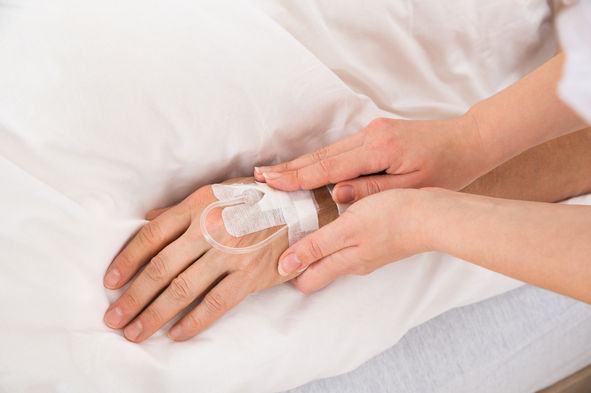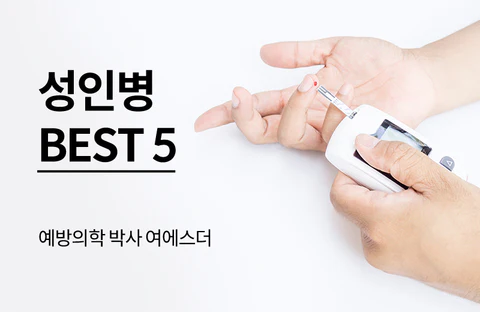BEST 6 Anti-Cancer Treatments
01 Vitamin D
02 Omega-3
03 Protein
04 Multivitamin
05 Probiotics
06 Vitamin C

For cancer patients, nutritional deficiencies are devastating
There is no supplement that cures cancer. But those who need nutritional supplements more than anyone else are those who are undergoing chemotherapy or need to boost their immune system after cancer treatment. A 2015 study by Yonsei University School of Medicine found that reducing the supply of sugar to cancer cells and stressing them usually leads to cancer stem cells that multiply faster and metastasize more easily. Cancer stem cells are literally the seeds of cancer cell proliferation, and they are scary cells that resist anticancer drugs and radiation therapy to the last and survive to cause recurrence and metastasis. Nutrient deficiencies act as stress and trigger gene expression to turn ordinary cancer cells into highly toxic cancer stem cells. Cancer patients need balanced nutrition, and if they can't afford it, it is recommended to supplement it in the form of nutritional supplements. This will have a positive impact on long-term treatment outcomes, such as reducing recurrence or metastasis. Most doctors who do chemotherapy will tell you not to eat anything other than the treatment given by the hospital, and to take care of your food. However, after chemotherapy, most of them feel nauseous, vomiting, and have no appetite and cannot eat properly. Naturally, nutrient deficiencies occur. Nutrient deficiencies are more lethal to normal cells than to cancer cells. Cancer cells make new blood vessels Normal bracts that try to take the nourishment from their surroundings but do not receive adequate nutrients wither and die. This leads to a decrease in white blood cell counts, and if you get pneumonia or a cold, it will be difficult for you to receive your next chemotherapy treatment.
01
Vitamin D is an anti-cancer vitamin
Of all the supplements, the most important one for cancer is vitamin D, which is called an anti-cancer vitamin. If you are at high risk for colon, breast, or prostate cancer, it is recommended to take 2,000~3,000 IU of vitamin D daily. Even if you have already been diagnosed with cancer, your blood level of vitamin D will not exceed 20 ng/ml if you don't take vitamin D supplements. A large-scale randomized clinical trial involving cancer at the Harvard T.H. Chan School of Public Health in the U.S. also has a daily dose of 2,000 IU. If the current level of vitamin D in my blood is 20ng/ml, if I take 2,000IU of vitamin D preparation every day, my blood level will increase by 20ng/ml after 3~4 months, and it can be maintained at about 40ng/ml. The concentration of vitamin D in the blood, which can have anti-cancer effects, is more than 40 ng/ml. It is important to remember that even if the target blood level is reached, adults need to take about 2,000~3,000 IU of vitamin D every day to maintain a blood level of 40 ng/ml. For adults, there is no need to worry about side effects when taking vitamin D below 4,000 IU. In fact, I'm taking 3,000 IU of vitamin D daily. Getting enough vitamin D from an early age can help reduce the risk of breast, colorectal, and prostate cancers in adulthood.
02
Reduce inflammation with omega-3s
Long-term inflammation increases the likelihood of cancer in tissues. Omega-3s reduce the inflammatory response in the body and reduce the side effects of chemotherapy, which include a decrease in platelets and white blood cells. Omega-3s, in particular, are beneficial for breast cancer patients. Recently, studies have shown that increasing the concentration of omega-3 in the blood can increase the survival time of breast cancer patients, and breast cancer hospitals in the United States recommend high doses of omega-3 to patients to reduce the recurrence of breast cancer. I also recommend breast cancer patients to take an omega-3 formulation (a product with a purity of at least 50%) at a dosage of 1,000 mg at a dose of 4 capsules per day. Omega-3s also help reduce fatigue in breast cancer patients
03
Eat high-quality protein
During chemotherapy, it's important to make sure you're getting enough high-quality protein. Protein also plays an important role in increasing the level of white blood cells responsible for immunity and regenerating tissues damaged by radiation therapy. The problem is that cancer patients tend to avoid meat. This is because they have a strong feeling that they have cancer because they ate a lot of unhealthy foods such as meat. However, while undergoing chemotherapy, you should not eat anything you eat and you should also eat lean meats such as beef to prevent your immunity from compromise. Beef contains a lot of protein that stimulates the production of white blood cells and builds antibodies, which reduces the chances of catching colds, flu, and pneumonia during chemotherapy. If you can't get enough protein from food alone, you can supplement with protein powder. If you're undergoing chemotherapy, it's better to choose a protein formula that contains anti-inflammatory substances, such as curcumin from curry or sulforaphane from broccoli, rather than regular protein powders.
04
Let's think about a multivitamin
It's also a good idea to take a multivitamin while undergoing chemotherapy. Most patients undergoing chemotherapy complain of a dry mouth, no appetite, and feeling very tired. The various vitamins and minerals in the multivitamin help to regenerate the mucous membranes, reduce fatigue and prevent loss of appetite. However, if you undergo radiation therapy after undergoing surgery such as thyroid cancer, you should temporarily stop taking multivitamins for 2~4 weeks. This is because the iodine in multivitamins affects radiation therapy. Unless your hospital restricts your intake in the form of educational materials, it is recommended that you take a multivitamin along with vitamin D, omega-3s, and protein powders.
05
Probiotics can also help
During chemotherapy, you are often prescribed a number of medications and antibiotics. Antibiotics kill not only harmful bacteria in the gut, but also good bacteria. If there are many harmful bacteria in the intestine when the immune system is compromised, various toxic substances can enter the blood, which can lead to the risk of sepsis. If you are taking antibiotics in addition to chemotherapy, you may want to take probiotics.
06
Empirical Observations of Vitamin C
There are not many randomized clinical studies on the correlation between vitamin C and cancer. However, it has been empirically observed that receiving a high dose of vitamin C injections after chemotherapy and while waiting for the next chemotherapy treatment reduces the pain caused by cancer and reduces the side effects of chemotherapy. In fact, giving high-dose injections of vitamin C to patients with terminal cancer may reduce the use of narcotic painkillers such as morphine. It is believed that hydrogen peroxide from the oxidation process of vitamin C kills cancer cells, and this hydrogen peroxide does not affect normal cells. On the contrary, it is known to help regenerate tissues damaged by anti-cancer drugs. Although high-dose intravenous vitamin C injections may not increase the lifespan of cancer patients, they are well worth using in terms of maintaining good physical condition and quality of life during chemotherapy. If cancer is already developed, it is better to quickly increase the level of vitamin C in the blood, preferably in the form of an intravenous injection, rather than taking vitamin C in pill form.





Comments (0)
There are no comments for this article. Be the first one to leave a message!